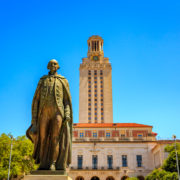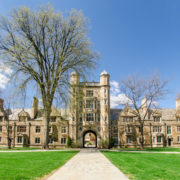College President’s Report – January 2018
Appointments
Agnes Scott Names New President
Leocadia “Lee” Zak has been named the next president of Agnes Scott College located in Georgia. Zak previously served as director of the U.S. Trade and Development Agency and received a law degree from Northeastern University. She will take over for Elizabeth Kiss, who announced her retirement in June.
Former Wharton Dean Announced as Cleveland State President
Cleveland State has picked Harlan M. Sands to become the school’s next president. Sands is currently vice dean and CFO of the Wharton School at Penn. He will begin his tenure in July with a salary of $455,000.
**Keep track of all the changing administrators in Higher Ed-Test our database for free with HigherEd Direct HERE!
Johnson College Selects President
The board at Johnson College has named Ms. Katie Leonard to become president of Johnson College. Leonard currently acts as the Executive VP of Johnson. She will begin her roll as president on July 1st.
Michigan State Appoints Former Governor in Wake of Scandal
Former Governor John Engler has been named as interim president of Michigan State University. The appointment comes in the wake of the Larry Nasser sexual abuse scandal which resulted in former president, Lou Anna Simon’s resignation. Engler will stay as acting president while the board conducts a nationwide search for a replacement.
Saint Michael’s Appoints New President
Dr. Lorraine Sterritt will become the 17th president of Saint Michael’s College, located in Vermont. Sterritt previously served as dean of administration at Harvard. Dr. Sterritt will take over for President John Neuhauser in July.
Utah Selects Next President
The University of Utah has appointed Dr. Ruth Watkins to become president of the school. Watkins formerly served as the SVP for academic affairs at the school and was unanimously chosen by the board to replace outgoing President David Pershing.
Wiley College Appoints Next President
The Board of Trustees at Wiley College has announced that Dr. Herman Felton Jr. will become the university’s next leader. Felton is currently president of Wilberforce University. He will replace outgoing president, Haywood Strickland, who is retiring in June.
Retirements
College of Charleston President Announces Retirement
Dr. Glenn McConnell will retire as president of the College or Charleston this summer. McConnell has served at the position since 2014, when he became the schools 22nd president. He cites health and age as the significant factor in his retirement.
Coe to Retire from COTC
Dr. Bonnie Coe has announced her retirement from Central Ohio Technical College. She began her role as president at the college in 2004, and said, “I am confident of COTC’s promising future, an excellent team is in place and…will carry COTC into its next 50 years.” Coe will step down in January of next year.
President Retiring from MCC
After more than 20 years at the helm, Dr. Scott Elliot has announced his retirement from Meridian Community College. He said, “Being part of the MCC family has been the greatest blessing of my 33 years in higher education administration.” Elliot will officially retire in June of this year.
Retirement Announced at Seminole State
Dr. E. Ann McGee has announced her retirement as president of Seminal State College of Florida. She is only the second president in the school’s history and has served there since 1996. Dr. McGee will leave on July 31st.
Resignations
U of Rochester President Resigns Amid Scandal
President Joel Seligman has resigned as president of the University of Rochester after the release of a report on sexual misconduct on campus. Seligman wrote in an email to campus, “It is clear to me that the best interests of the University are best served with new leadership, and a fresh perspective to focus on healing our campus and moving us forward in the spirit of cooperation and unity.” Dr. Richard Feldman has been announced as the interim president at the school and will begin immediately.
Central Michigan President Announces Retirement
President George Ross has announced he will step down as leader of Central Michigan University. Ross has served the school for the past 8 years, and will leave in July of this year.
Keck Resigns from A & M Commerce
Dr. Ray Keck announced that he will step down as president from Texas A & M University at Commerce in August. Keck has led the school since 2001.
Wight Resigning from Weber State
Dr. Charles Wight will resign from Weber State this June. He announced his resignation this past week and plans to give the Board ample time to find a replacement. He has served as president of Weber State since 2014












